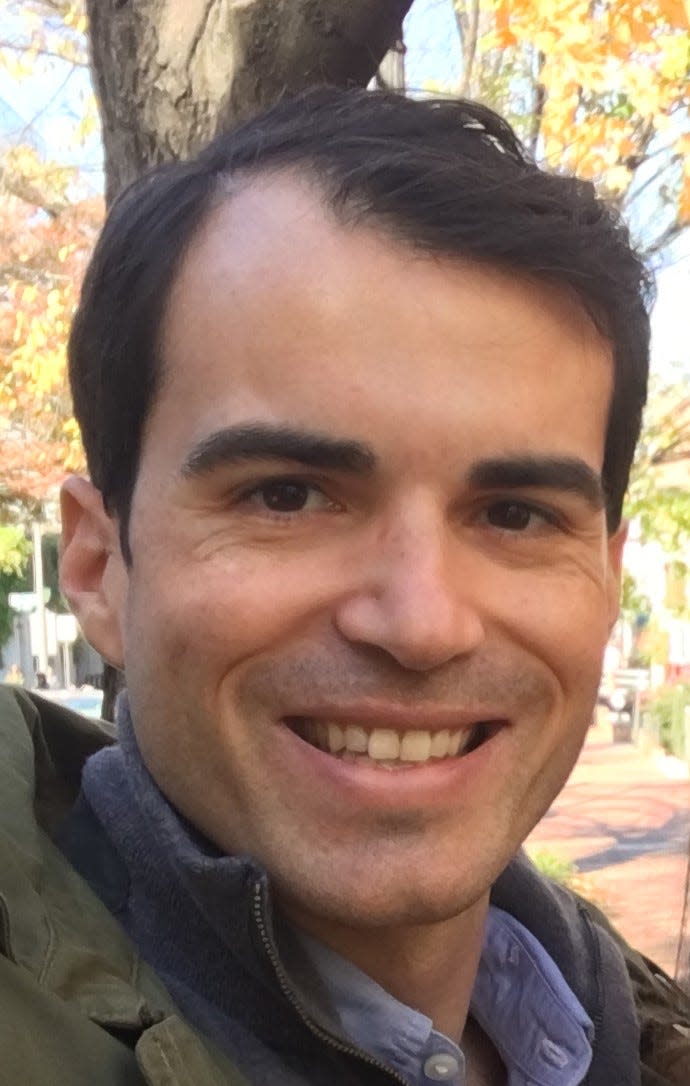Nazi marches and anti-Jewish slogans are leading to a dangerous increase in antisemitism
I first visited the United States Holocaust Memorial Museum in the eighth grade during a school trip to Washington.
While I came away with some knowledge and appreciation of the unspeakable tragedy of those events, it seemed so far away to a 12-year-old.
Black-and-white photographs and grainy footage have a way of distancing us from events. “Thank God that’s over,” I thought. “Thank God for America. Such things could never happen here — not in a safe country.”
But in recent years, it became clear to lawmakers that antisemitism was on the rise around the globe.
In response, Congress enacted legislation to elevate the State Department’s office tasked with combating antisemitism and increased its funding; yet, while we watched with concern antisemitism’s rise abroad, our government, institutions, and citizens appear to have ignored it at home.
From Charlottesville to Oct. 7, antisemitism has worsened
The chants of “Jews will not replace us” at Charlottesville in 2017 and the mass murder at the Tree of Life Synagogue in Pittsburgh were condemned, but they were not widely seen as evidence of rot beneath the surface.

And then October 7 happened. Within hours of the attacks, and in the weeks since, we have witnessed abhorrent displays of soulless inhumanity against Jews by fellow Americans: physical and verbal attacks against Jews on the streets of New York, a Stanford instructor publicly segregating Jewish students from their peers, demonstrators holding signs reading, “There is only one solution”—a clear reference to the Nazis’ final solution of eradicating Europe’s Jews, and the list goes on and on.
For the first time in my life, I’ve felt with devastating certainty that I was looking into the eyes of those who would have stood on the sidewalks of European cities smiling as Jews were evicted from their homes or forced to scrub cobblestones. I’ve seen those eyes before in the sepia-toned photographs, and they are all the more terrifying in high resolution color. The horrors of the past no longer feel trapped in history.
We have supposedly made steps toward inclusivity and rooting out bias from our schools, our workplaces, and our lives. We’ve held rallies against injustice and curated our lexicon so as to not cause offense with words. Our generation is so enlightened, righteous, and special. Well, if the events of the last few months have proven anything, it is this: we most certainly are not.
Disagreements are normal, but dehumanizing is abhorrent
A generation so self-assured and self-righteous has proven capable of utterly dehumanizing cruelty. We might even livestream it. Before we grow accustomed to such behavior, we must collectively ask ourselves how we go to this point, and more importantly, how we can change.
And lest anyone misunderstand or intentionally distort my point, I am not referring to those who call for a ceasefire in Gaza, or for an end to the occupation of the West Bank, or criticize the Israeli government.
Reasonable people can disagree on those issues. I am talking about those who deface Jewish synagogues and businesses, who carry signs reading, “Keep the world clean” with an image of a star of David in a trash can, who threatened Nashville’s own Jewish community this past December, and who marched through our streets with swastika emblazoned flags this past weekend.

Recently, as I prayed with my little girl, I couldn’t help but think the prayers of my Jewish friends and neighbors are probably a little different for their children. Could they be targeted just for attending school or wearing a kippah? Surely this will get better. Surely others will not remain silent and denounce this poison. This just can’t happen in America in 2024, not here—not in a safe country.
Grant Mullins is an attorney in Nashville. He previously served as senior counsel to the Senate Foreign Relations and House Foreign Affairs Committees.
This article originally appeared on Nashville Tennessean: Antisemitism in Tennessee: Hateful rhetoric and actions have increased

